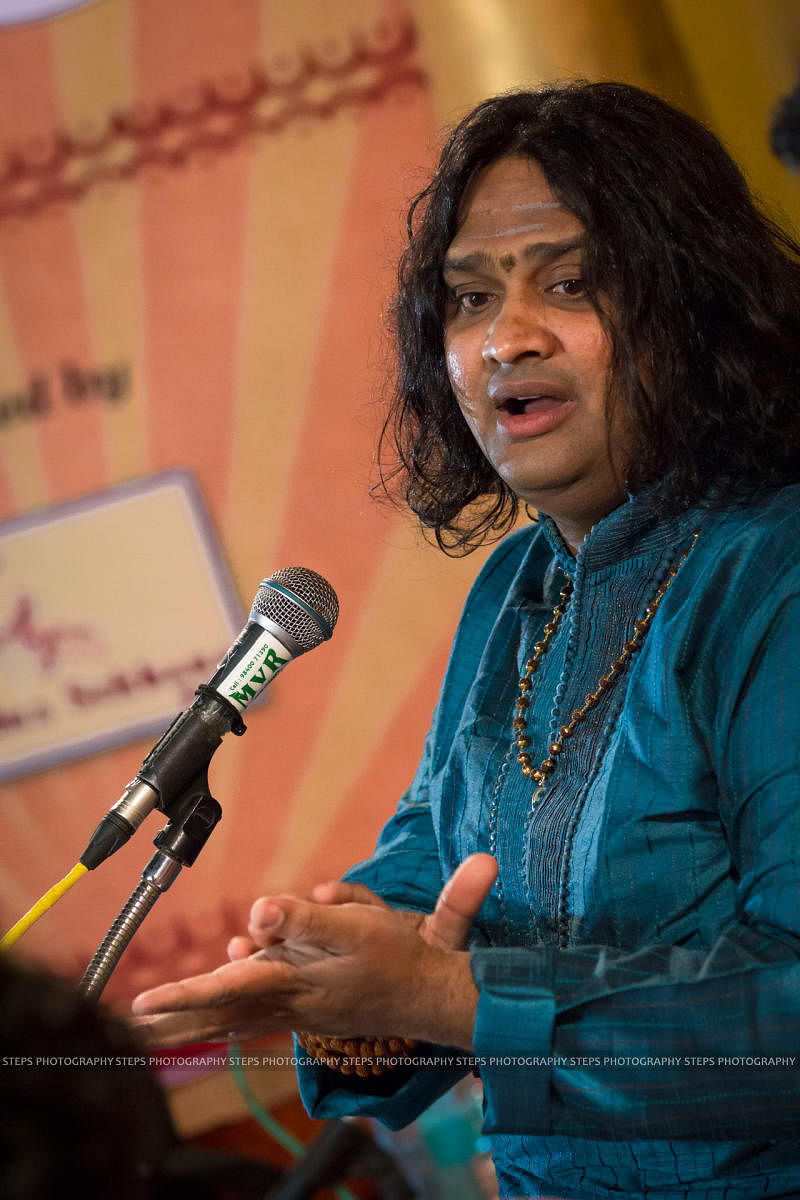
For Mahesh Vinayakram, the shadow of his giant of a father — the legendary Ghatam exponent Vikku Vinayakram — has been both intimidating and reassuring. It has made him determined to carve out his own persona as well as given him the confidence to seek new dimensions to his art. Today, Mahesh has been recognised around the world as a Carnatic musician with an unerring knack for making his music contemporary and relatable to the millennials, while retaining its classical roots.
Mahesh says his father is his role model not only for his music, but also for his life, right from his childhood. Mahesh’s formative years were spent soaking in the sounds of the mridangam, ghatam and morsing that his father and grandfather excelled at. “I was all of four when I formally started my training,” he recalls.
For a young lad, the rigour that classical music demands was hard to adhere to and unrelenting, but gradually, he began enjoying and revelling in it. “It is the base on which I build my musical explorations,” he says.
Mahesh has trained in classical singing under several renowned gurus including Radha Viswanathan, daughter of M S Subbulakshmi. “It was my grandfather who initiated me into singing rather than learning an instrument,” Mahesh reveals. His grandfather, the morsing and mridangam maestro Harihara Sarma, was a visionary himself. He insisted that Mahesh concentrate on melody first, and rhythm would naturally follow. “He said if I learn to sing, I could perform with my father — the very thought was too tempting. I looked at it both as a dream and a challenge.”
Perhaps why he believes his most memorable concert till date has been his performance in Bali in 2000 as part of the UNESCO Millennium Concert series. “My father and his band Sapthaakshara, my siblings and I, all of us performed together, along with musicians of several other countries. It was an electrifying experience for me,” he remembers.
Creativity on
Like his father, Mahesh has always been open to new ideas despite hailing from a traditional Carnatic background. He believes it would be tragic to bind music within the boundaries of languages, countries and genres. “One must have command over the grammar of classical music to experiment. I use this grammar in my cross-cultural collaborations,” he explains. Mahesh adds he believes in accepting and opening up to different genres of music. “I have witnessed the power of merging genres myself — there is nothing more inspiring than artistes of different nationalities and cultures coming together to create something new.”
I dream of an Indian-based theme where I can sing along with Western artiste
True to his word, Mahesh has worked with several big names in music, including Zakir Hussain, Nitin Sawhney, Talvin Singh and George Brooks. In fact, he was the first Indian male classical singer to be a part of the renowned theatre company Cirque du Soleil’s production Luzia, inspired by Mexican mythology. The company performed 320 shows over 345 days in 2016, all over Canada and America, and highlighted the interspersing of dream sequences with classical Indian ragas sung by Mahesh.
In movies
For lovers of Kollywood music, Mahesh might well be a familiar name. ‘Puli Urumudhu’, a song he sung for the movie Vettaikaaran, was a huge hit. He has also famously collaborated with A R Rahman for the movie Raavan in 2010 and others later. He also performed with Australian beatbox sensation Dubfx at the Jaipur Literature Festival.
However, Mahesh’s biggest wish is to sing for a philharmonic orchestra.
“I dream of an Indian-based theme where I can sing along with Western artistes. I have sung in some orchestras, but I am yet to experience the grandeur of the philharmonic," he muses.
It is said Mahesh’s father Vikku Vinayakram was almost single-handedly responsible for putting the ghatam on the world stage. With his contemporary touches and explorations in Carnatic fusion, Mahesh is certainly following in his father’s footsteps.